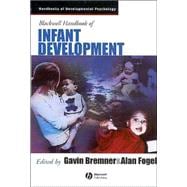
Christopher E. Lalonde is an assistant professor in the Department of Psychology at the University of Victoria. His research interests include social-cognitive development in childhood and adolescence and the influence of culture on identity development and determinants of health.
Bryan W. Sokol is an assistant professor in the Department of Psychology at Simon Fraser University. In addition to his interests in identity development, Bryan’s research includes the study of children’s developing epistemic and moral reasoning.
Darcy Hallett is a Ph.D. candidate in Developmental Psychology at the University of British Columbia. In addition to the subject matter of this Monograph and to identity development in general, Darcy’s research interests include epistemological development and children’s understanding of mathematics.
| Contents | |
| Introduction | |
| The Antimony of Sameness and Change | |
| On Self-Continuity and its Developmental Vicissitudes | |
| What Young People Have to Say about the Paradox of Sameness and Change | |
| Self-Continuity and Youth Suicide | |
| From Self-Continuity to Cultural Continuity | |
| Aboriginal Youth Suicide | |
| Culture as a Set Point in the Choice between Narrativist and Essentialist Self-Continuity Warranting Practices | |
| Conclusions | |
| Appendix: Sample Questions from the Personal Persistence Interview | |
| Commentary | |
| Treading Fearlessly: A Commentary on Personal Persistence, Identity Development, and Suicide | |
| Table of Contents provided by Publisher. All Rights Reserved. |
The New copy of this book will include any supplemental materials advertised. Please check the title of the book to determine if it should include any access cards, study guides, lab manuals, CDs, etc.
The Used, Rental and eBook copies of this book are not guaranteed to include any supplemental materials. Typically, only the book itself is included. This is true even if the title states it includes any access cards, study guides, lab manuals, CDs, etc.